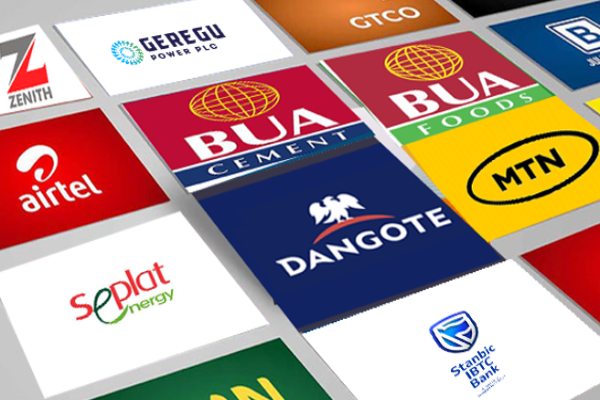What is a franchise?
One of the easiest ways to start a business is to open a franchise. Although for many it may be a large investment, we must take into account all the resources and efforts that are saved when starting up your own brand.
Furthermore, not all franchises require high investments to acquire them. Therefore, we want to explain to you exactly what a franchise is and how it works so that you know this business model and know if it is the option you need.
Definition of franchise
Franchise is understood to be a business format intended for the marketing of goods and services, in which one person – natural or legal – grants another the right to use a brand or trade name for a certain period of time. It is a commercial relationship in which one party pays an amount of money to another for the exploitation of its brand.
In the 17th century, the term franchise meant immunity, freedom, it is a word that is derived from the Latin francus and this in turn from the Germanic term frank, which translates as exempt or immune. In fact, at this time it was used to designate various forms of privilege that exempted from liens or taxes.
Meaning of the term franchise according to its origin
If we talk about the business sector, franchising is a type of granting of exploitation rights for a product, activity or trade name, granted by a company to one or several people in a certain area.
And the last meaning of the word franchise consists of the insurance contract, the minimum amount of damage from which the insurer’s obligation arises.
In franchising we focus on the second definition of franchise, we talk about the franchise business model to refer to a person called a franchisor, who allows a person or investor, who is called a franchisee, to use the name of a franchise, its corporate image and its entire business model in exchange for economic compensation.
Difference between Franchise and Brand License
Franchising also involves the transmission by the franchisor to the franchisee of the entire range of knowledge and experience that enables the latter to carry out the effective operation of the business in a uniform manner with commercial and administrative methods applied in different markets.
Franchising is a formula that has proven to be very successful today and that allows for rapid business expansion and market dominance, but it also involves assuming obligations and a series of economic compensations.
There are a series of differences between the franchise formula and the licensing of a brand, including the advice and training that the franchisee receives in the former. At Franquicy they are experts in this business model and they explain step by step how to distinguish both methods when approaching a company expansion strategy.
How do franchises work?
A priori, the operation of franchises is very simple, however, we must be aware that there are many types of franchises, so each of them has different characteristics. In addition, each brand has its own processes and policies that are defined from the first moment so that there are no misunderstandings in the future. But in this case, we are going to talk about the general conditions of the franchises.
The franchise is a commercial contract in which two parties intervene. On the one hand, the franchisor, or franchising company, and on the other, the franchisee. In this way, the franchisor transfers the license to exploit its brand to the franchisee, who will pay a certain amount of money to the franchisor for the right to exploit it during a specific time.
In other words, it is based on paying a brand to be able to open a business with its name. Let’s take the example of a Starbucks, in which an entrepreneur pays the Starbucks company an amount of money to open one of its stores to exploit it for his own benefit.
What does each of the parties achieve? Well, very simple. The franchisee manages to open a business with a very powerful multinational brand, with products that will be a draw for customers. Just by having this brand, the franchisee will get many more customers than if he opened a neighborhood coffee shop.
For its part, the franchisor manages to expand its business and its brand easily, without having to manage each of the stores it has in the world and, increasing monthly income with the payment of franchisees. In addition to paying for the brand, in many franchises, you must also pay for the products, since the supplier is the franchisor itself.
That is the general operation. However, we must keep in mind that each franchise has its own agreements and clauses. All of them must be stipulated in the franchise contract, in which the franchisor-franchisee relationship is established, so that the parties know what their rights and obligations are at all times.
In this way, if someone fails to comply with any of the things signed in the contract, the other will be able to claim it legally.
Online store franchises are currently experiencing an exponential growth because the initial investment is not as large as with a traditional franchise. It is not necessary to have a physical establishment, only with an e-commerce is it possible to start selling products.
Advantages and disadvantages of opening a franchise
Below we list successively some of the most important advantages and problems of acquiring a franchise. Learn more about the basics of a franchise to understand how exactly they work.
Benefits of buying a franchise
We can find different very positive aspects of opening a franchise, compared to creating a business.
- Greater probability of success. When the entrepreneur acquires a franchise opening license, he purchases a brand already established in the market, with a well-defined customer segment. On the contrary, when you start your own project from 0, you do not have any type of help at the level of advertising and image that could be a boost for growth. We cannot forget that independent businesses have a 70 to 80% chance of not surviving during the first critical years, while franchisees have an 80% chance of staying active and continuing in the market.
- Equipment and initial help. Starting a personal business requires a considerable investment to obtain equipment, supplies, logistics, etc. necessary to start business activity. However, when you acquire the franchise you obtain part of the necessary elements to start the business without problems. In many cases, the professional also receives help at the level of continuing training, advertising and marketing.
- Purchasing power. In the case of businesses dedicated to the marketing of products, the franchise allows the entrepreneur to enjoy the benefits of collective purchasing through all of the franchisees that are part of the company. Thus, both inventory and supplies will involve less costs than in the case of forming an independent company.
- More brand trust. As it is a well-known name, the customer places greater trust and security in the franchise when purchasing products from it, compared to a white brand or another less recognized brand. Therefore, it is easier to start a business as a franchisee and close sales, compared to another recently created business.
Disadvantages of acquiring a franchise
However, not everything is benefits, since there are also some problems that can arise when opening a franchise. Therefore, it is essential to take into account the risks of franchising.
- Beware of possible fraud. Just because a brand is offering franchise acquisition is no guarantee that the franchise you are purchasing will turn out to be successful. In fact, in some cases the franchise is the business itself. In this case, the franchise is not interested in whether its individual entrepreneurs are successful or not, but rather in selling the greatest number of branches.
- Higher cost. In general, acquiring a franchise involves a greater fixed economic expense than in the case of creating a business from scratch. The starting entrepreneur can choose where to invest more money or simply wait for the business to greater benefits, while in the franchise the investment is mandatory.
- Support during the business journey. Some franchises make promises of training and advice that they then do not fulfill, leaving the entrepreneur without the possibility of help during their business career. Before deciding to open one franchise or another, it is important that you consult previous opinions to know the follow-up that said brand offers.
- Continued spending. It is possible that the franchise may ask the entrepreneur for an entry fee or percentage derived from the profits, charging extra fees for advertising or business maintenance tasks; so spending increases significantly.
Read Also: How to Start a Logistics Company? Important Guide
Knowing all these advantages and disadvantages of franchises is necessary before creating a company, in order to know if it is the best option to start our business.
Characteristics of a Franchise Agreement
Now that you know what a franchise is and what it consists of, we are going to review each of the characteristics of a franchise that derive from its different definitions and the elements that make up a franchise relationship, that is, the franchisee and the franchisor. pay attention:
- Franchising a business means having a company with a proven and consolidated commercial formula that has experience in the sector. A pilot company or franchise is usually established on a trial basis to demonstrate that it is viable.
- A main characteristic of the franchise is that the two figures, both the franchisee and the franchisor, are independent both on a legal and financial level.
- The business concept of a franchise must have been previously exploited to verify that it can become a profitable business.
- A characteristic of a basic franchise is the training of franchisees. The franchisor must provide training before its activity begins and it must be complete and detailed training. It is in this training that all the knowhow or know-how of a franchise will be transferred, which is key to carrying out the company’s activity successfully. For this reason, the know-how is easy to reproduce and transmit.
- Finally, another of the main characteristics of the franchise is the continued support for the franchisee as well as monitoring and control. What’s more, controlling the activity of each of the franchises, their start-up and their day-to-day operations is absolutely necessary to verify that the company is functioning correctly and that the business concept is not deteriorating.







**mitolyn**
Mitolyn is a carefully developed, plant-based formula created to help support metabolic efficiency and encourage healthy, lasting weight management.
https://t.me/s/Monro_officials
https://t.me/s/officials_pokerdom/3817